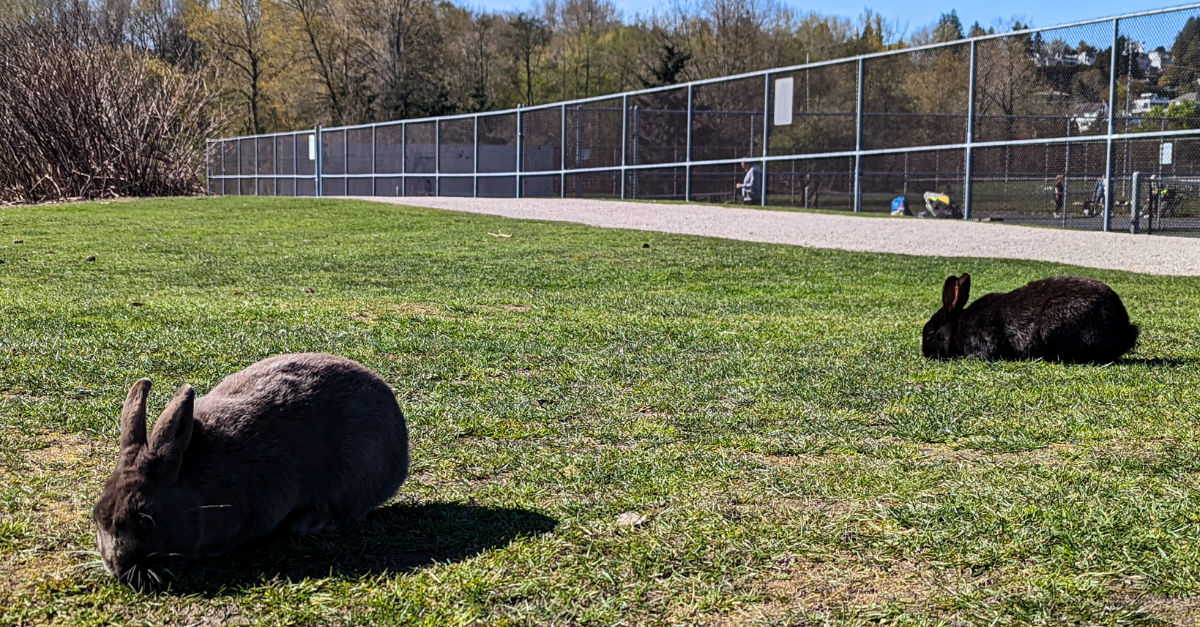
April 5 2023 –
Ahead of Easter weekend, the Vancouver Board of Parks and Recreation is appealing to the public not to release, feed or touch Jericho’s fluffiest locals for their sake – and yours.
Feral rabbits populate the grassy areas around Jericho Beach. Drawn by their fluffy tails, twitching noses, and relative tameness, people often try to handle and feed them. But these interactions pose serious health threats to both the animals and the public and have a negative knock on effects to the environment.
Invasive species
Unbeknownst to many, Jericho Beach’s feral rabbit population is an invasive species colony, originating from domestic pets that have either been purposefully released into the wild or escaped.
Invasive species can out-compete native species for food and space, damage ecosystems, disrupt food sources and introduce parasites and disease. They are the second greatest threat to biodiversity following habitat loss.
Don’t release
Easter bunnies, bought as a gift, are sadly often abandoned in parkland once the novelty has worn off and the responsibility of pet ownership sets in. Not only does this contribute to the negative impacts of feral rabbits in the park but it leaves domestic animals frightened, malnourished, and vulnerable to a huge range of harmful consequences including traffic accidents, predators, and disease.
Don’t feed
Wildlife feeding is prohibited across all Vancouver parks and beaches and can incur a fine of up to $500. Not only is feeding feral rabbits unhealthy for them, but when they gather around feeding areas, they become more vulnerable to predators and spreading disease. Food left out for rabbits attracts mice and rats which can lead to infestations and further opportunities for spreading diseases like Hantavirus.
Don’t touch
Touching or trying to pick up wild animals is distressing for them, and can put people at risk of being bitten or scratched. More seriously, rabbits carry pests and parasites such as ticks, which can transmit deadly diseases to humans and dogs such as Lyme Disease.
While trying to get close to a small fluffy bunny can seem harmless, the best thing you can do for any wild animal gives it space, and observe from afar. If you have a dog, keep it under control, on a leash, and away from wildlife.
As education and signage rolls out to remind the public how to peacefully coexist, the Vancouver Board of Parks and Recreation will continue to work closely with wildlife experts, the BC SPCA, and the Invasive Species Council of BC, on long-term research and monitoring of rabbit populations and their impact on Vancouver park ecosystems.
With springtime in full swing, the public are reminded that coexisting and protecting Vancouver’s wildlife relies on all of us doing our part to ensure both animals and people can enjoy our greenspaces without negatively interacting with one another.
Any incidents of wildlife feeding should be reported immediately by calling 3-1-1 or using the Van311 app.
For more information on Vancouver’s wildlife and tips on peaceful coexistence, visit: https://vancouver.ca/parks-recreation-culture/wildlife.aspx